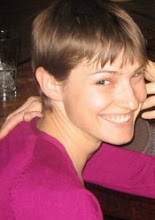Entering a new world created for us by narrative requires an excellent midwife; this is the first of the many roles the good author plays. Transitions--from inside to outside, from home to work, from our world to the author's--pose a challenge. The consummate raconteurs know this, and so consider how best to birth us into the place and time we will inhabit for the coming hours or days.
There are different schools of thought on how this transitioning is best accomplished. Some go for the lukewarm toweling: clearing our daily world away, while replacing what we know with what we are to know, one story element at a time. Take Peter Hoeg's The Woman and the Ape, for example. It begins: "An ape was approaching London. It sat on a bench in the open cockpit of a sailboat, all hunched up with its eyes closed and a blanket around its shoulders. Even in that position it made the man sitting across from it seem smaller than it actually was." We have an ape. Only after we have a sense of what he is doing, what he looks like doing it, where he is doing it, and his mental state while doing it, does the author deem it time to introduce a new element: the man. Jonathan Ames, true to character, prefers immediate and shocking immersion as the mode best adapted for bringing the reader into the gritty world of i PASS like NIGHT. "I like this one whore on the lower East Side, her name is Goldie because of her teeth, and she's really sweet." In the very first sentence the reader juggles an "I" about whom little is known with a whore about whom we know just as little, except she has gold teeth. In the polite world of introductions, this is not the order of things: I might introduce a friend to a friend first by way of profession or background, but not by her interest in whores or the particularities of her dental work. Of course, politesse and narrative exist in realms apart; the judgments of one cannot infringe upon the territory of the other. To each midwife her own technique, so long as the reader recovers adequately to develop and grow within the particular world into which she was birthed.
Subscribe to:
Post Comments (Atom)



No comments:
Post a Comment